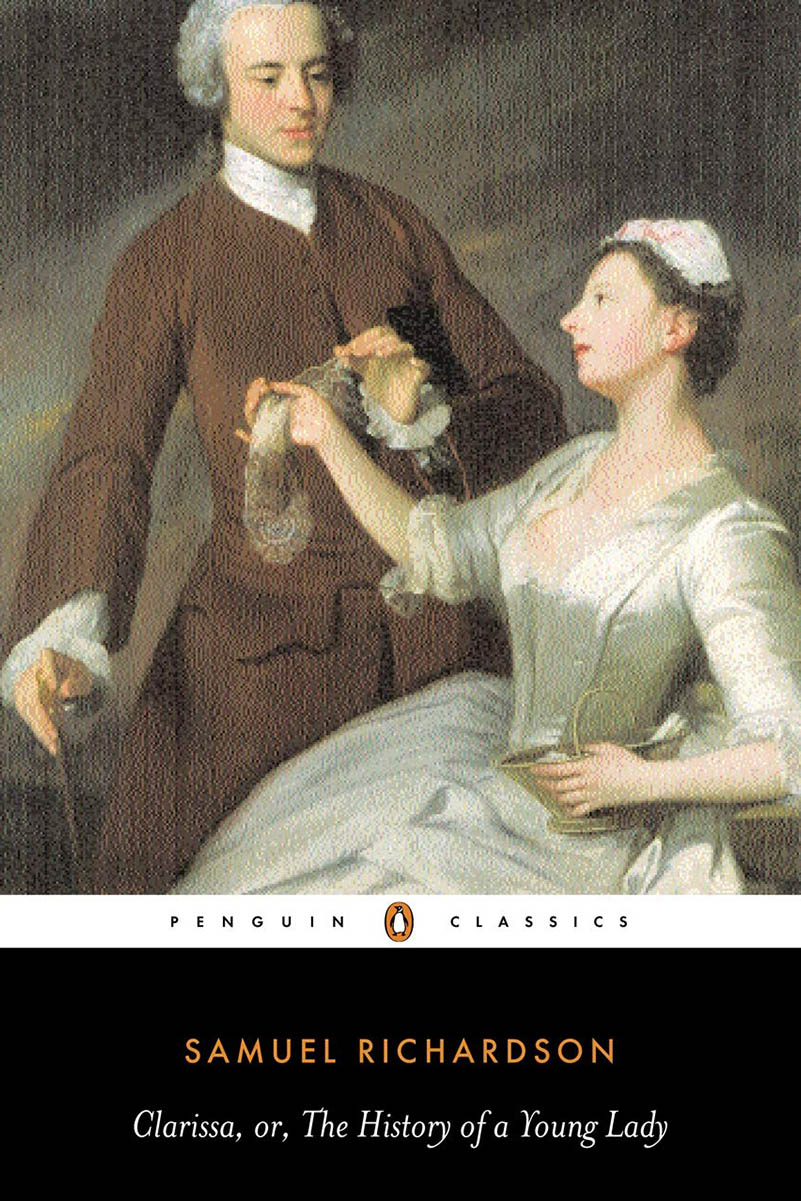Clarissa
by Samuel Richardson
Samuel Richardson’s Clarissa has been a landmark of all English literature since its inception. Its predecessors didn’t have the same level of heart and depth that it introduced. Everyone who wants a stronger understanding of the rise of the modern novel should give Samuel Richardson’s magnum opus a read.
When I texted a friend that I had just finished reading Clarissa, his response was, verbatim, “Jesus Christ. I just looked up the word count. Why?” Even though many might be scared off by the obscene length (it’s supposedly the longest book in the English canon and everyone on twitter calls it “gargantuan”), Clarissais a powerful and immersive novel that is still relevant today. I originally found it in an abridged form, and only after reading it did I realize what I had done (I had to rush-order the complete novel). After reading both versions, I strongly believe that everyone should read the complete novel. There’s so much that gets lost when it’s cut up.
The novel, written only in letters, discusses the life of the young, beautiful, and “virtuous,” Clarissa Harlowe; she debates whether or not to give in and marry her abuser, Robert Lovelace, or try to escape and find happiness on her own (which, for the time, without money or status, would be incredibly difficult. It is, after all, 1748). Society doesn’t give Clarissa an adequate escape—Clarissa must choose whether or not to fail her integrity and live with her pain, or die with honor. Clarissa is a novel that becomes supremely relevant in this day and age—society isn’t giving women a choice now either. Which is why, to those who haven’t read it (and to those who read it eons ago), now is the time to get a copy.
The novel takes place during the span of one year. Starting January 10th and ending December 18th, the reader is witness to society’s destruction of a woman’s sanity and livelihood in her real-time. It’s something that one rarely sees done so well. When you finish, you start to wonder if Clarissa had other options besides death. There doesn’t seem to be one. The complete version is crucial to experience this immersion, of course.
When I first began reading, my first thoughts were, “Where is the plot? This seems like just banter between two young women with a few angry men who randomly interject.” And it is. Which is exactly what makes it so different and interesting. The banter and the intimacy of the epistolary form is fantastic. Clarissa’s only solace is writing to her friend Anna for, estimating on how much she writes, what must be at least 8 hours per day. There are also some hilarious angry letters between Lovelace (which I want to think stands for ‘loveless’) and his friend. Relationships are so deeply explored in Clarissa–even modern ones can’t accomplish as strongly.
Clarissa is definitely a different type of novel. When I read it this summer, I found myself thinking, “How had I never heard of this novel before now?” It’s a must-read. More people should write in the epistolary form; it’s so under-utilized. I can’t think of another novel that can measure up to the genius of Clarissa.



